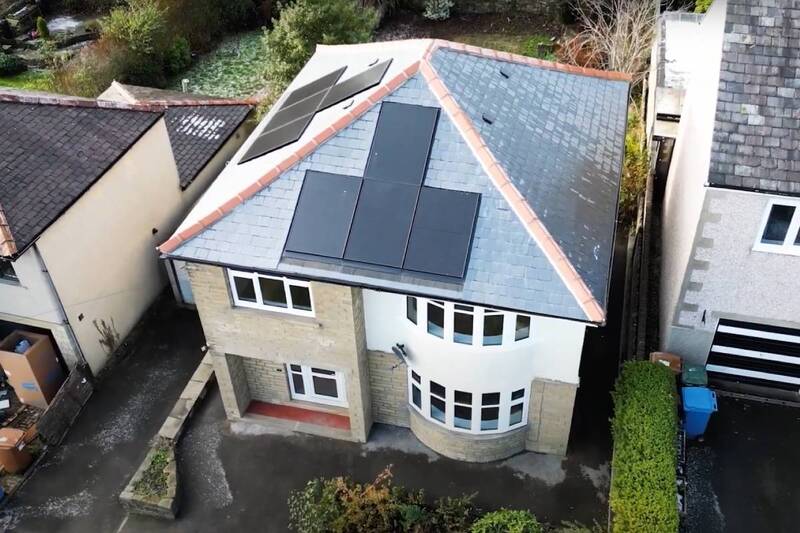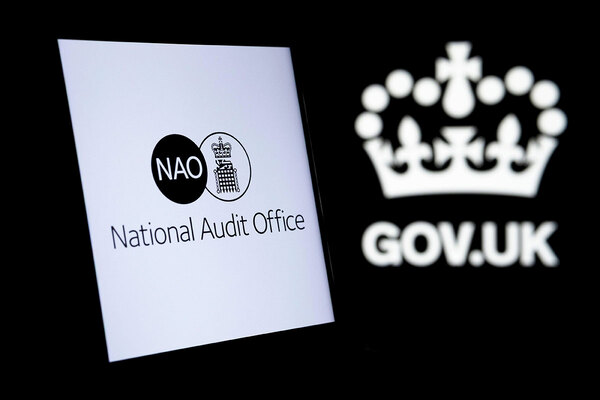Building society calls for electricity levy changes after retrofitting 1930s home
One of the UK’s largest building societies has called for changes to electricity levies after it retrofitted a 1930s home.
Skipton Building Society called on ministers to “rebalance” electricity pricing to make green heat systems viable, saying that the current price of electricity was “too high for many to incentivise action”.
Its intervention came after reports that the government is considering electricity bill discounts for heat-pump owners, to create a financial incentive for people to replace gas boilers.
Skipton Building Society retrofitted a 1930s detached home opposite its office in North Yorkshire over 12 weeks in autumn 2024. It fitted the house with an air-source heat pump, solar panels, battery storage, triple glazing, cavity wall insulation and ventilation improvements.
According to Leeds Beckett University, which measured the improvements, the retrofit improved the home’s Energy Performance Certificate (EPC) rating from Band D to B, and led to a reduction in its overall carbon footprint.
Reflecting on the project in a report published on Monday, Skipton said: “Without changes to electricity price premiums, retrofitting can’t guarantee lower energy bills but can deliver lower energy consumption. It can also have health benefits.”
It said the government should “rebalance policy levies” to ensure fair pricing and support for energy-efficiency measures.
“We want to see the government consulting on options to identify practical approaches to addressing the price imbalance which currently positions the price of electricity as too high for many to incentivise action,” it added.
Currently, the price customers pay for electricity includes levies to fund renewable-energy generation, retrofits for vulnerable customers and the Warm Home Discount Scheme.
The £4.8bn worth of taxes applied to electricity bills have been blamed for Britain’s relatively sluggish heat pump sales compared with European countries, where electricity is cheaper.
Options to change this include transferring the green levies onto gas bills, or not charging tax on electricity powering heat pumps, as is the case in Denmark.
Skipton made three other policy recommendations to the government. The first was to reaffirm the commitment to net zero by 2050 to maintain market confidence.
“In recent months, some doubt has floated over whether the UK government will maintain this pledge. We believe that this uncertainty is impacting the wider market and perhaps slowing overall retrofit activity,” it said.
It also called for “clear retrofit expectations” for homeowners, not just landlords, and for the current VAT exemption on energy-saving home improvements to be extended beyond 2027.
The building society offers a green additional borrowing product for those wishing to finance retrofitting, either in their own property, or for landlords wanting to upgrade their portfolios.
Private landlords must achieve an EPC C on their homes by 2030, which will require retrofit upgrades on 2.5 million homes in the next five years.
Social landlords are also aiming to upgrade all their homes to EPC C by 2030 with grant funding from government. More than 75% of social homes already meet this target, but 980,000 social homes are still equivalent to an EPC D, E or F, according to the government’s fuel poverty statistics.
There are no hard deadlines in place for owner-occupiers yet, although the government is working towards a target of EPC C on all homes by 2035.
Garry Felgate, chief executive of the MCS Foundation charity, said: “It is very encouraging to see Skipton Building Society, a lender that can help fund energy-efficiency improvements in homes, calling for government policy to support wider-scale retrofitting.
“In particular, the recommendation to extend the zero rating of VAT on domestic renewable-energy installations, a policy that the MCS Foundation campaigned to introduce, is very welcome.
“So, too, is the call to reduce the cost of electricity to incentivise the transition to electrified heating, as this will support the renewables sector, tackle fuel poverty and help net zero all at once.”
A Department for Energy Security and Net Zero spokesperson said: “The energy shocks of recent years have shown the urgent need to upgrade British homes.
“Through our Warm Homes Plan, up to 300,000 households will benefit from upgrades this year, such as insulation, double glazing, solar and heat pumps – making them cheaper and cleaner to run.
“We are exploring a range of options for rebalancing gas and electricity prices – with securing better outcomes for consumers at the heart of our approach, and will set out further details in due course.”



